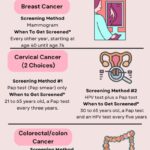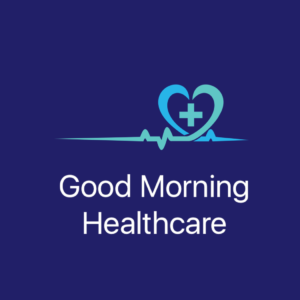Key Points
- Breast cancer is one of the most common types of cancer in the U.S. and the second cause of death from cancer for women.
- In light of new evidence, the U.S. Preventive Services Task Force (PSTF) has updated guidelines to recommend that all women over 40 years old be screened for breast cancer every other year.
- Early screenings improve the chances for successful treatments and long-term survival rates by helping to identify the disease in its early stages.
- According to the National Institute of Health, 300,590 new cases are expected in 2023 in the U.S. alone.
New Data Drives a Shift in Recommendations
Previous guidelines suggested routine mammograms every other year starting at age 50. Only those who had irregular biopsies, or a family history of breast cancer were recommended for earlier screening.
The decision to lower the screening age to 40 for all women was based on a thorough review of new and more inclusive evidence that showed a recent increase in breast cancer diagnoses among women in their 40s.
Data from 2015 to 2019 showed an average increase of 2% per year in breast cancer cases in this age group.
Early Detection Can Save Lives
It is estimated that up to 20% more lives of women in this age group could be saved if these new screening recommendations are followed.
According to the Center for Disease and Control (CDC), mammograms can detect cancer cells up to three years before they can be felt in a physical exam. They are considered the most effective tool for detecting breast cancer in the early stages.
A mammogram, considered minimally invasive, is an X-ray picture of the breast that takes only a few minutes.

Cancer Screening Cheatsheet

Send download link to:
Targeting At-Risk Populations
These new guidelines are expected to provide much needed support for high-risk groups, such as black women, who are more than 40% more likely to die from breast cancer.
The Task Force recognizes this and is calling for more research to understand the causes and develop interventions to address this disparity.
As Rachel Brem, M.D., a radiology director at The George Washington University Medical Center, says, “Breast cancers in young women grow faster and are more aggressive.” She further recommends that “Women who have a first-degree relative with breast cancer — a sister or mother — should begin screening five to 10 years earlier than the age at which their family member was diagnosed,”
The Gold Standard- Reliable and Trusted
The task force recommendations are considered the “gold standard” as per the NPRbecause they are based on a thorough expert and independent review of data and evidence.
Most doctors will follow their guidelines and insurance companies can use the guidelines to set coverage parameters for coverage, making screenings and mammograms more affordable for all women in their 40s.
Accessibility and Support
Under the Affordable Care Act, most private health insurers now cover annual mammograms with no cost-sharing fees for patients.
For women who are uninsured and have low income, the CDC’s National Breast and Cervical Cancer Early Detection Program provides access to free or low-cost mammograms. Click here for more information about eligibility and available locations.
The CDC also recommends that women become self-aware of how their breasts look and feel so that they can notice symptoms such as lumps, pain or changes in size that may be of concern. On a routine basis, self-exams can help a woman detect any changes early on that may require further investigation.
Conclusion: Early Screenings Save Lives
The updated recommendations from the PSTF emphasize the importance of mammograms for all women over 40, highlighting the potential to save lives through early detection.
By following these guidelines, women can take a proactive approach to their health and increase their chances of successful treatment.
Dr. Carol Mangione, the immediate past chair of the task force, reminds women that the most important thing to know is “to start screening at age 40, because it just might save your life.”
Image by Drazen Zigic on Freepik

Thank you, You will be automatically subscribed to the our newsletter.